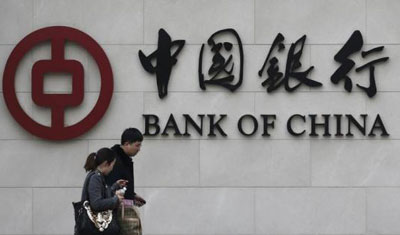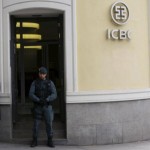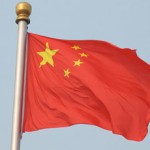Dirty Dealing: China and International Money Laundering

In the midst of turmoil in the Chinese stock markets, one serious problem that may appear is increased currency outflows created by current and potential investors who would rather move their assets to foreign countries viewed as safer havens. Money laundering should be under close surveillance.
Chinese involvement in money laundering has been growing. “China leads the world in illicit capital flows,” according to the 2015 International Narcotics Control Strategy Report (INCSR) of the Bureau of International Narcotics and Law Enforcement Affairs of the U.S. State Department, which monitors international money laundering. The report not only states that China is a leading source of illegal money transfers, but that it consistently fails to cooperate with other countries in resolving cross-border money laundering.
In addition to enumerating conventional methods of illegally transferring cash, the Report also notes that Chinese authorities have identified “the adoption of new money laundering methods, including illegal fundraising activity, cross-border communications fraud, and corruption in the banking, securities and transportation services.” It goes on to report that “Chinese authorities have also observed that money laundering schemes continue to spread from the developed coastal areas…to underdeveloped inland regions.”
Against this background, some recent developments are grounds for concern: Italian prosecutors are seeking to indict the Bank of China (BOC) for laundering billions of euros via a branch of the Bank in Italy. The Bank and government officials have refused to cooperate.
As China’s international economic relations continue to expand, China must be willing to cooperate to detect and punish cross-border crimes that are multiplying. At the same time, China realizes that it needs international cooperation from foreign countries as it attempts to locate and extradite Chinese officials who have fled abroad to escape punishment for corruption.
Last month it was reported that Italian prosecutors are seeking to indict the BOC, four BOC employees in the Milan branch, and a company in Italy that operates a money transfer service for laundering billions of euros to China during a period of almost four years. According to prosecutors, more than 4.5 billion euros ($5.1 billion) were sent to China via the money transfer service, of which “nearly half” was moved through BOC.
It is reported that when Italian officials tried to appeal to Chinese authorities for help, “they got nowhere.” Prosecutors discovered that “Money2Money,” an Italian company owned by Chinese immigrants, had been transferring the proceeds of criminal activity. Italian authorities investigating the transactions had encountered the “great legal firewall [that] separates China from the West.”
They have met “inconsistent cooperation, incompatible legal systems and China’s secrecy laws.” BOC said that its contract with Money2Money was legal and that it had no information about any criminal activities. The Chinese Consulate in Florence and the Chinese Foreign Affairs Ministry have also denied any knowledge of the alleged conduct.
The Italian investigation has disclosed that the largest trading company in Wenzhou owned by an investment group controlled by the government of that city, a hub of Chinese entrepreneurship, had received some of the funds sent by Money2Money.
Foreign complaints about Chinese money laundering are not new, but public accusations within China are uncommon. It was therefore surprising when in July 2014, BOC was accused by no less than Chinese Central Television for helping clients avoid controls on cross-border fund transfers by wealthy Chinese citizens seeking to make substantial investments in the U.S., Canada and Australia that would facilitate their emigration.
Later in the same month, after investigation, BOC and two other banks “temporarily suspended” a remittance service that had allowed wealthy Chinese citizens to funnel cash abroad in amounts that exceeded the annual ceiling of $50,000. This has not, however slowed the constant flow of investments abroad, especially in real estate.
China is seeking to find and repatriate some 100 officials charged with corruption in the course of the campaign that has been pursued for two years. Most are reported to have gone to English-speaking countries, especially the U.S and Canada. Neither country has an extradition treaty with China but both are said “to have shown their willingness, albeit cautious, for law enforcement cooperation to facilitate the investigation of Chinese fugitives.” U.S. law poses considerable obstacles to extradition because of radical differences between Chinese and U.S. legal systems.
Chinese banks are obligated under Chinese law to exercise vigilance over their clients’ transactions for signs of illegal conduct. If they discover any, they are required to report to the China Anti-Money Laundering & Analysis Center which, if it finds evidence of money laundering, is required to report to the China Anti-Money Laundering Bureau. Both agencies are within the People’s Bank of China (PBOC). China has an adequate legislative framework –on paper—for monitoring the conduct of the banks, but diligence at the banks is apparently deficient. Internal reform is necessary in order for laundering to be closely policed.
Mechanisms for international cooperation in combating money laundering do exist. The 2015 U.S.- China Strategic and Economic Dialogue included these words: “[T]he two sides commit to jointly engage their respective financial sectors in selected bilateral meetings in order to share anti-money laundering and combating terrorist financing best practices.”
In addition, China is a member of the Financial Action Task Force (FATF), an inter-governmental body developing and promoting policies to combat money laundering and terrorist financing. All members are required to report suspected money laundering to that body. FATF investigates suspected noncompliance with international standards, and may initiate an evaluation by a group of experts from other countries that are members of the organization. If serious problems are reported, FATF identifies “jurisdictions that have strategic deficiencies and works with them to address those deficiencies that pose a risk to the international financial system.”
Money laundering can be addressed by China either through bilateral cooperation or through FATF. The pressure to resort to both will grow.
Source: WSJ – Dirty Dealing: China and International Money Laundering





























